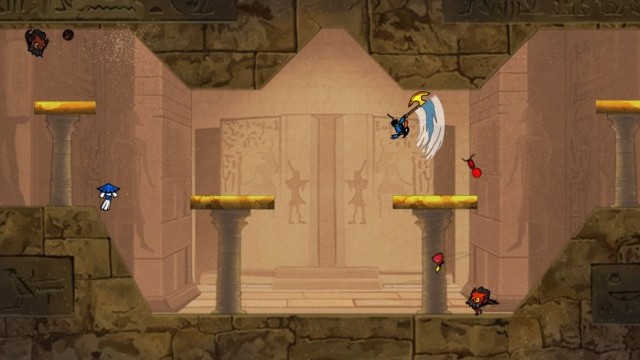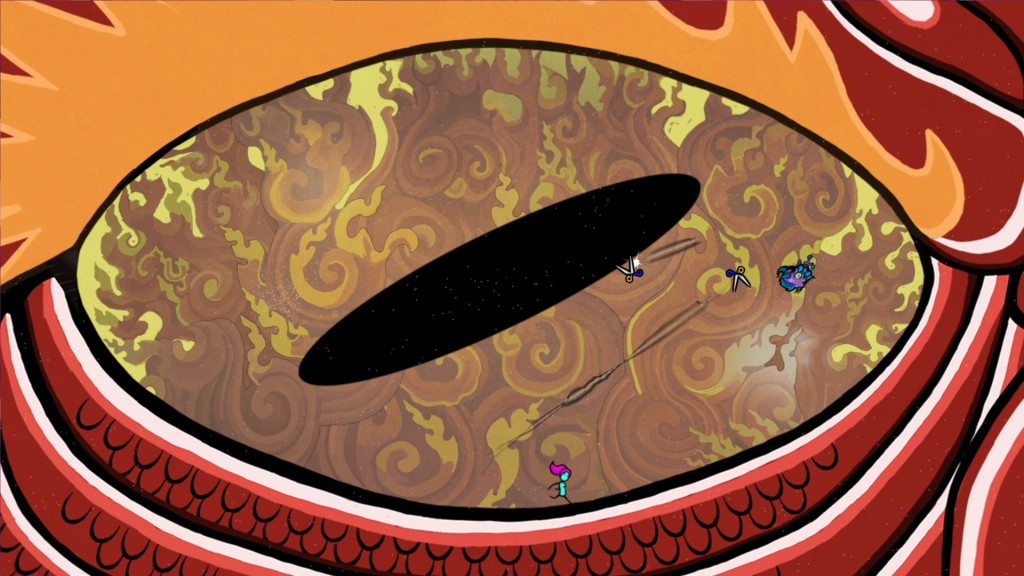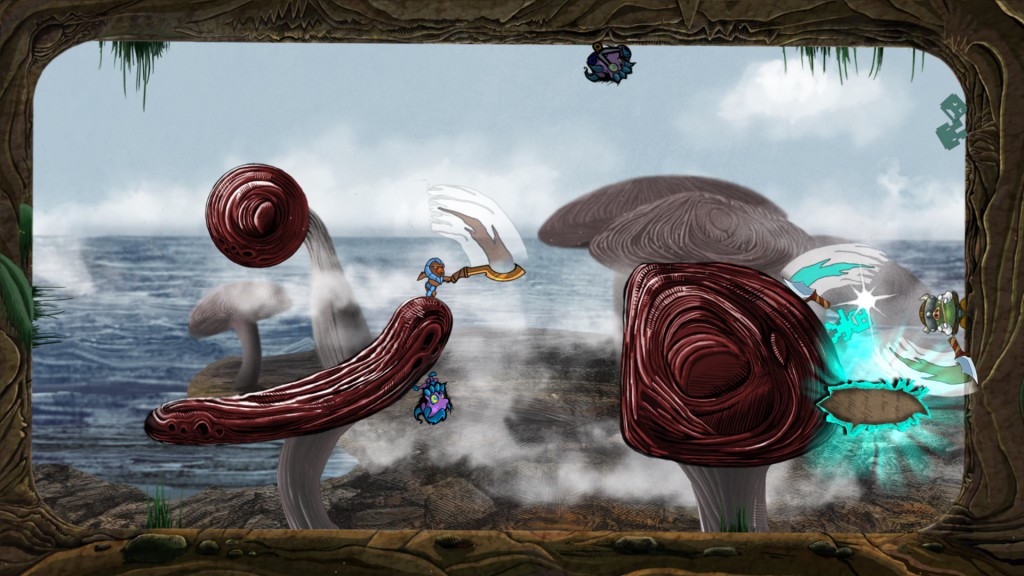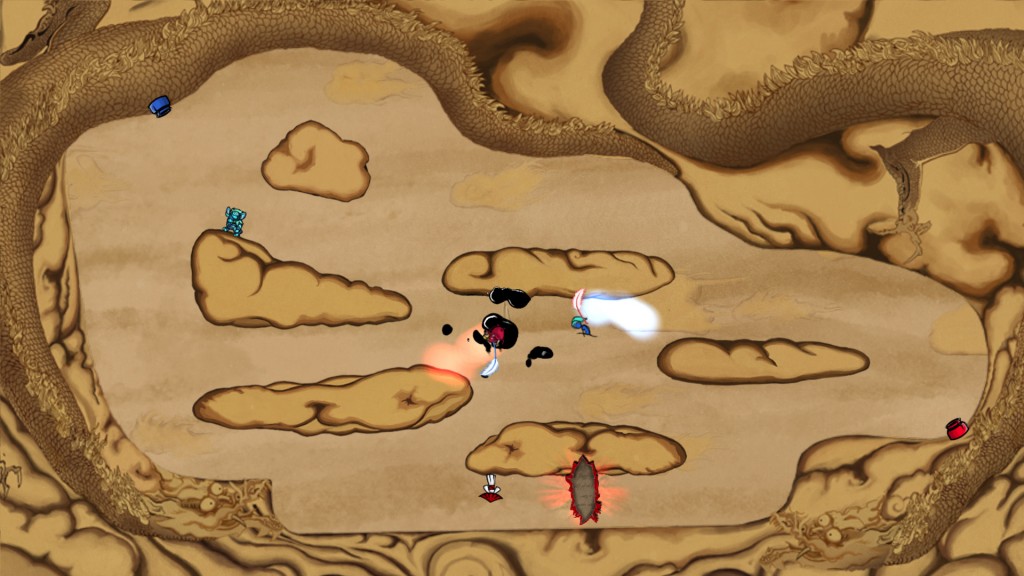
Brawlers seem to be in short supply as of late. Aside from Super Smash Bros., the lack of new entries has left me wondering when other consoles will provide something of the sort. While it’s not Smash, Paperbound, the new game from a small team at Dissident Logic, can fill that void for PS4 and PC players in the meantime.
Paperbound is a relatively simple brawler that borrows a handful of characters inspired by famous literary works featured in the game, such as Journey to the Center of the Earth, The Book of the Dead, A Book of Five Rings, Skull Kingdom and Dante’s Inferno. Alongside the 11 characters made from the featured books, the game features guest characters from various indie games such as Juan from Guacamelee!, The Gentleman from Monaco and Captain Viridian from VVVVVV.

Your task is simple: defeat your opponents and escape through your tear on the page to win the map. Each character is equipped with three weapons that can be utilized to take down your foes: a standard melee attack for close range business, a pair of scissors that can attack from afar and an ink bomb that can defeat a handful of opponents if used correctly. What makes Paperbound distinct from other brawlers is its gravity mechanics. Thanks to the lack of standardized gravity, players can run along walls and flip gravity to reach new areas and surprise opponents to get the edge on them. Players can duke it out in various modes such your standard Free-For-All and Survival, as well as Longer Live the King, in which the first kill crowns the king you only earn points as long as you are crowned, and Capture the Quill, a team-only mode which plays exactly as you’d guess.
Paperbound focuses on couch co-op and actually lacks an online mode, a feature that most games of this genre seem to have. I loved being able to play alongside my friends, talk smack and rush to beat them down since I wanted to prevent them escaping through their page tear and ultimately winning the round. Something about that just made all the difference in the world, and made us remember why we enjoy the company of other players. However, Dissident Logic is completely aware sometimes your friends aren’t always around to play alongside or against you. The game’s A.I, while it doesn’t fully fill that void, will provide an ample challenge to practice strategies and stage layouts.

The bots all play differently and according to, what one would imagine, their personalities. Characters like the Monk will play with patience and precison, mostly relying on the ranged attacks to secure kills and swift close-quarters kills when someone decides to approach him. On the opposite end, Juan is more aggressive and will pursue opponents with his fists rather than relying on ranged attacks or bombs. Skull Soldier will blindly throw out melee attacks when you’re even close to being in range, praying for a kill. At no point do the bots ever feel unfair to the game, since they adapt to how their opponent plays.
Stages follow the theme of their books, and are created accordingly to bring variety to each match. Stages from Journey to the Center of the Earth are extremely simple in design, and aside from some intentional oddities, possess fewer hazards to stop you from winning. Dante’s Inferno, on the other hand, has stages that are surrounded by hazards that can kill you and bring you into negative point totals. To help decide what stages are the best to battle on, the game supplies you with information that gives the recommended number of players best suited for that arena. The only issues I ran into all came from Dante’s Inferno, as stages like Pages of Pain opened page tears in spots that no human player could execute properly without killing themselves and losing the victory point anyway.

Unfortunately, aside from brawling with your friends or bots, there isn’t much else to do in the game. For a game that draws inspiration from various literary works, the lack of an actual story is disappointing. The game could’ve also benefited from an challenge mode (alongside achievements), in which players are tasked to do certain things to win matches to give the game a little bit of longevity and replay value.
If you’re looking for a simple, no-frills game that’s easy to pick up and settle arguments in minutes flat, Paperbound is definitely a fun game to look into. It’s fast-paced and has a surprising amount of depth, thanks to the gravity effects that will keep players on their toes.
Pros: Simple controls, gravity mechanics add depth, guest character selection is nice.
Cons: Replay value is lacking, questionable stage design



















